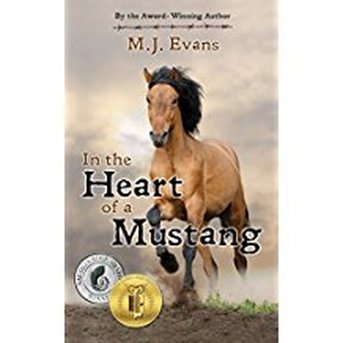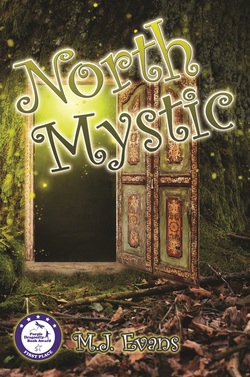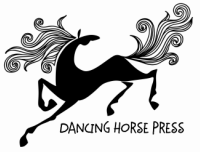WHY READ ALONE WHEN YOU CAN READ WITH FRIENDS? JOIN A BOOK CLUB AND READ TOGETHER!

Discussion Questions
In the Heart of a Mustang
1. Chapter 1: Why would Hunter have such a visceral reaction to the sudden appearance of his father?
2. Chapter 1: Why would Melody create a false father for Hunter? Under what circumstances, if any, would this be a good idea?
3. Chapter 1: Is it true that “Sometimes life changes people,” as Melody asserts?
4. Chapter 1: Discovering the truth about his father became a watershed moment, dividing Hunter's life into a before the truth and after the truth. Have you had any watershed moments in your life? What makes an event that influential in a life?
5. Chapter 2: What kind of person is the "AT" Hunter?
6. Chapter 2: Is crying a pain drain? Why or why not?
7. Chapter 2: Some people clearly have the “Follow Me” type of charisma. How can this be good or bad?
8. Chapter 3: How is Anthony playing on Hunter’s emotions to get the boy to do what he wants him to do?
9. Chapter 6: Hunter’s grandpa realizes that “something inside the boy had died." What died?
10. Chapter 6: Smokey says: “Horses and people are a lot alike. It doesn’t take much to destroy our trust but it takes a dang long time to earn it back.” Is this true? Why or why not?
11. Chapter 6: “Ain’t nothin’ better for trainin’ a boy than a horse, I always say.” How are the two compatible?
12. Chapter 7: According to Smokey, there is a difference between breaking a horse and training a horse? What is the difference and why is this important to the story?
13. Chapter 12: How does “knowing the end from the beginning” determine actions and choices?
14. Chapter 16: Why is forgiving someone such a hard thing to do?
15. Chapter 23: In what way is anger a choice?
16. Chapter 25: How does anger weaken you?
17. Chapter 28: Is revenge justice as Hunter asserts?
18. Chapter 28: “Life isn’t fair for anyone…that’s what makes it fair.” Is that true?
19. Chapter 32: What are the qualities of a good leader?
In the Heart of a Mustang
1. Chapter 1: Why would Hunter have such a visceral reaction to the sudden appearance of his father?
2. Chapter 1: Why would Melody create a false father for Hunter? Under what circumstances, if any, would this be a good idea?
3. Chapter 1: Is it true that “Sometimes life changes people,” as Melody asserts?
4. Chapter 1: Discovering the truth about his father became a watershed moment, dividing Hunter's life into a before the truth and after the truth. Have you had any watershed moments in your life? What makes an event that influential in a life?
5. Chapter 2: What kind of person is the "AT" Hunter?
6. Chapter 2: Is crying a pain drain? Why or why not?
7. Chapter 2: Some people clearly have the “Follow Me” type of charisma. How can this be good or bad?
8. Chapter 3: How is Anthony playing on Hunter’s emotions to get the boy to do what he wants him to do?
9. Chapter 6: Hunter’s grandpa realizes that “something inside the boy had died." What died?
10. Chapter 6: Smokey says: “Horses and people are a lot alike. It doesn’t take much to destroy our trust but it takes a dang long time to earn it back.” Is this true? Why or why not?
11. Chapter 6: “Ain’t nothin’ better for trainin’ a boy than a horse, I always say.” How are the two compatible?
12. Chapter 7: According to Smokey, there is a difference between breaking a horse and training a horse? What is the difference and why is this important to the story?
13. Chapter 12: How does “knowing the end from the beginning” determine actions and choices?
14. Chapter 16: Why is forgiving someone such a hard thing to do?
15. Chapter 23: In what way is anger a choice?
16. Chapter 25: How does anger weaken you?
17. Chapter 28: Is revenge justice as Hunter asserts?
18. Chapter 28: “Life isn’t fair for anyone…that’s what makes it fair.” Is that true?
19. Chapter 32: What are the qualities of a good leader?
I would be happy to attend your book club meeting either in person if in Colorado or by skype. Contact me at: [email protected] and we'll talk about it.

HOME SCHOOLERS: You can receive a FREE lesson plan using North Mystic to help you study the Revolutionary War. The PDF file can be sent to you by writing to the author at: [email protected]
|
TEACHERS AND HOME SCHOOLERS: There is a NEW lesson plan to help your study of the early twentieth century that goes along with "PINTO!" It is FREE. The PDF file can be sent to you by writing to the author at: [email protected]
|

